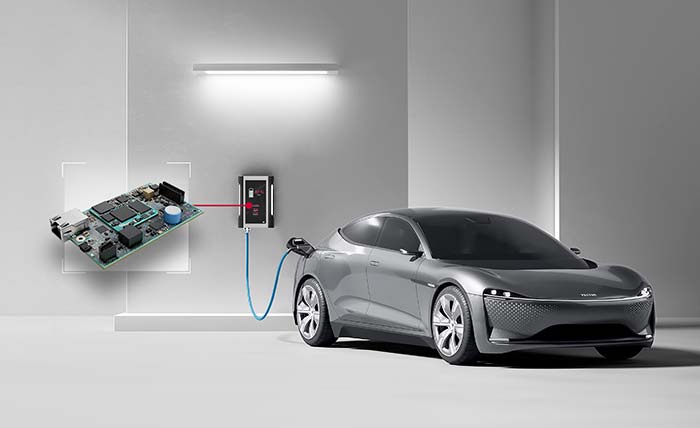
vSECC.single Board as plug-in controller fulfilling new AFIR requirements for AC charging points Image rights: Vector Informatik
From 2026 and 2027, operators and manufacturers of AC wallboxes and charging stations must comply with new requirements set out by the Alternative Fuels Infrastructure Regulation (AFIR). Vector already provides suitable communication controllers, a software library, and a charging and energy management solution to meet these demands.With the upcoming amendments to AFIR, the EU is setting clear rules for an interoperable and future-proof charging infrastructure. Starting January 8, 2026, all newly installed or substantially upgraded publicly accessible AC charging points must support the EN ISO 15118-2:2016 standard. This standard defines digital communication between the vehicle and the charging point via Power Line Communication (PLC), enabling features such as Plug & Charge, which allows vehicles to authenticate automatically – without the need for cards or apps.
Implementation of the EN ISO 15118-20:2022 standard
From January 1, 2027, AFIR will also require implementation of the EN ISO 15118-20:2022 standard for the same types of charging points and, in addition, for all private ones. This significantly expands communication capabilities. Alongside Plug & Charge’s successor, Park & Charge (PnC), the new standard introduces bidirectional applications. This means electric vehicles can not only draw energy from the grid but also feed it back (Bidirectional Power Transfer, BPT). ISO 15118-20 thus enables new use cases, such as vehicle-to-grid services, where vehicles act as mobile energy storage or provide grid support by stabilizing frequency and voltage.
For many manufacturers, this transition represents a major shift. Until now, most systems have relied on analog communication using Pulse Width Modulation (PWM) as defined in IEC 61851-1. This method only supports basic functions, such as communicating maximum current levels between the vehicle and the charger. More advanced features like PnC or BPT, however, require powerful controllers with digital PLC capabilities. Operators must also ensure their charging points support both ISO 15118-2 and ISO 15118-20 to guarantee full interoperability with current and future vehicle models. Complying with AFIR will therefore require a redesign of many existing devices, including upgrades to processors and PLC chips.
vSECC.single Board
Vector already provides the right technology for this transition. The vSECC.single Board is a control unit that fulfills all AFIR requirements and provides the communication logic necessary for AC charging. It can be flexibly attached to custom electronics, adding intelligent control and communication functionality without restricting PCB design. The vSECC.single variant in a DIN-rail housing uses the same software foundation. For manufacturers developing their own hardware, Vector offers vSECClib, a proven software library ensuring ISO 15118 compliance. Complementing these, the vCharM charging and energy management system supports integration into energy management solutions and enables bidirectional charging.
AFIR is an EU regulation governing the development and operation of infrastructure for alternative fuels, including EV charging points. It applies directly in all EU member states without the need for national transposition. Its goal is to ensure interoperability and user convenience across Europe. The mandatory ISO 15118 support requirements from 2026 and 2027 lay the groundwork for optimized and secure charging throughout the EU.


